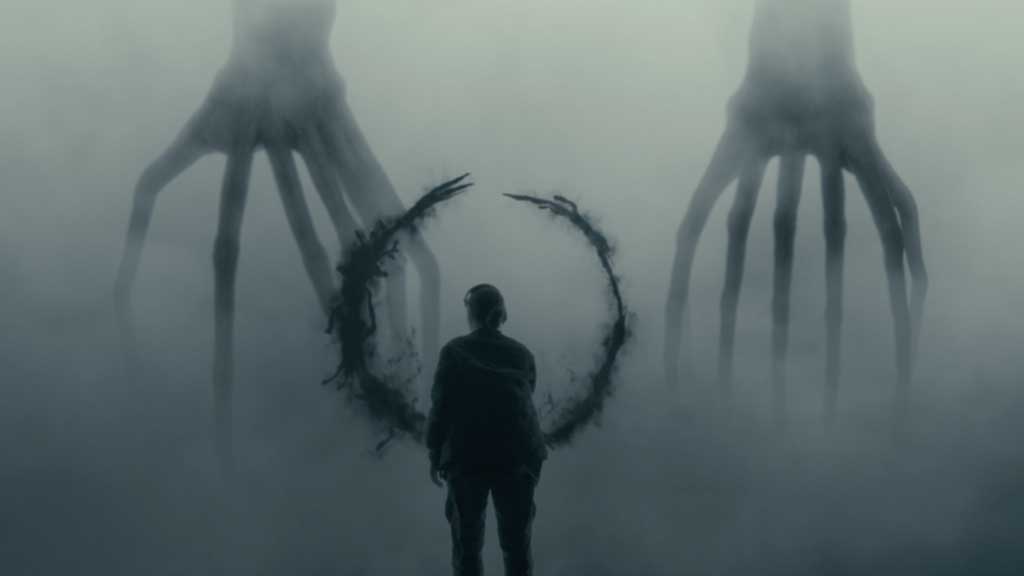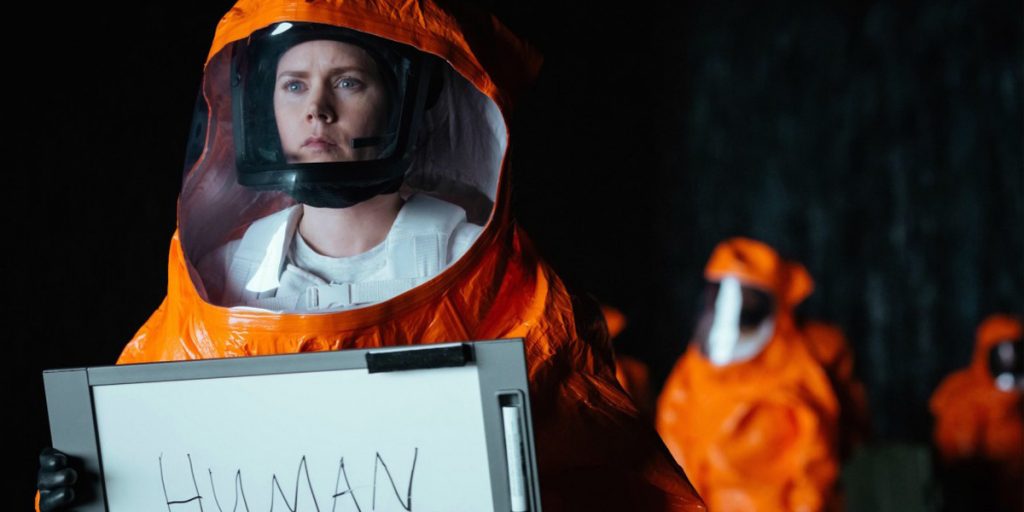The concept of time is somewhat elusive, particularly in Villeneuve’s ‘Arrival’. Here’s our analysis of the film’s surprisingly comforting take on the matter.
This article contains spoilers for ‘Arrival’ (2016).
In traditional understanding, time is divided into three distinct forms: the past, the present and the future. In this particular model, the past is considered to be ‘fixed’, whereas both the present and the future are subject to change as a result of our individual actions. As humans, we tend to think of the present as ‘reality’, as it is the moment that we constantly experience with our senses. However, Villeneuve’s Arrival poses a completely different interpretation of the flow of time – an interpretation where past, present and future all exist in coherence with one another. Here, there is no true ‘reality’. All of time is equally real, the past and the future included, and the present is nothing more than one individual moment in an endless collection of them. But whilst this may initially seem like a daunting and overwhelming prospect, Villeneuve embraces our innate unknowability of time as a defining characteristic of humanity, suggesting that it is this exact misunderstanding that makes us so special as humans.
Arrival is the story of linguistics professor Louise Banks (Amy Adams), who is called to lead a team of investigators attempting to communicate with the Heptapods, extraterrestrial lifeforms that have arrived on Earth without warning. Louise becomes obsessed with decoding and understanding these aliens’ language system, as it grows increasingly clear that their form of communication is extremely different to ours as humans. They do not communicate with words, but rather a series of complex symbols that seem to be rooted in a non-linear understanding of time. As Louise begins to gain understanding of this language, she subsequently gains the aliens’ ability to think of time non-sequentially. She sees events in the future that have not happened yet, and experiences memories from the past as if they are happening right at that moment. The present is no longer her sole reality – she has developed a ‘simultaneous consciousness’.
By bringing the character of Louise to the same intellectual plane as the Heptapods, the film poses an extremely important and potentially unanswerable question: how can we know for certain that our understanding of time is correct? How can we definitively claim to be objects moving sequentially through time, rather than time itself being a concept that we can only perceive momentarily? Our senses seem to suggest that we’re moving through time in some sort of order – we throw a ball in the air, we see it rise upwards, and then we see it fall to the ground – but Arrival seems to suggest that our linear understanding is simply proof that our minds are not capable of perceiving time in its true form. It’s only Louise’s advanced knowledge of language and her intimate communication with the Heptapods that allows her to access non-sequential time – for all others, it’s still impossible. So if the perception of time isn’t as clear and objective as we thought, how can we say that our understanding is the correct one?

There are plenty of alternative answers to the question, so how can we truly say that we’ve figured out the correct one? Well, first we have to assess the evidence for our position. And the only real evidence that we have for sequentialism is the result of our sensory experience. We see things happen chronologically with our eyes, so we assume that this must be the truth. But are our senses actually persuasive evidence? Could our senses not be wrong? Our senses are, by design, restricted to the present. We can only see what is happening right in front of us, and we can only touch that which exists right now. As human beings, we are built to access the present – not the past, not the future.
Even if time were non-sequential, our senses still restrict us to accessing it sequentially, so naturally we believe what our senses tell us. However, our minds are not subject to such restraints. In our minds, we can access the past just as easily as we can access the present. In our minds, we aren’t forced to experience moments in the order that they happen. So if the very nature of time changes depending on how we perceive it (linearly with our senses, non-linearly in our minds), then how can we claim either to be truer than the other? There can be no objective truth to the nature of time, and thus time cannot truly exist in any singular form.
So, time is entirely subjective. For us humans, it appears to be a linear progression of moments from the beginning to the end, and for the Heptapods it is a total culmination of every moment at once. But both are equally real. Whilst the suggestion that time does not exist might initially seem immense and frightening, Villeneuve shows instead how it actually offers a comforting existentialism that defines who we are as humans. Time is something that we control. Our lives are not finite sequences of actions and consequences, but rather a constantly changing and evolving collection of moments, which we access chronologically. The film forces us to question why the present is seen as ‘reality’, when it is merely one of an infinite number of moments in time. By valuing the past, the present and the future equally, we gain a much more holistic and appreciative view on existence, even if the progression of time only allows us to experience each moment temporarily.
Arrival is much less the story of alien visitors than it is of humanity. The Heptapods are not the focus of this narrative – in fact, they could be replaced by almost any other device that forces our characters to consider that we are not the objective source of truth in the universe. Villeneuve is not suggesting that the Heptapods’ simultaneous consciousness is the ‘real’ way of understanding time, he is merely proving that our understanding is not as concrete and absolute as we may think. Understanding time linearly is an extremely restrictive and potentially damaging way of seeing the world. It puts excessive pressure on our actions, suggesting that everything we do in our entire lives depends on what we do today. Seeing our entire lives ahead of us, even if only in our imagination, takes the pressure away from life’s endless minutiae and allows us to simply sit back and enjoy the ride.
Arrival is now available to watch on digital and on demand. Read our review of Arrival.

